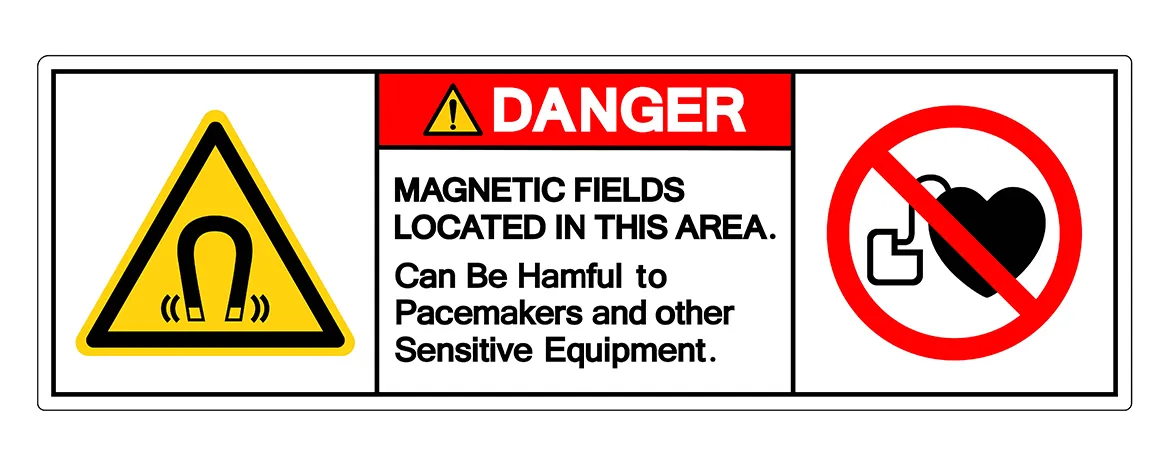Protecting Your Pacemaker From Smartphones, Power Lines, and Popular Devices

In the modern world, pacemakers are a critical healthcare technology that helps maintain the rhythm of the heart in people with irregular heartbeats. While pacemakers are life-saving devices, they are also sensitive to electromagnetic interference (EMI) from everyday electronic devices and certain environmental sources. Understanding how to protect your pacemaker from potential interference is essential for maintaining its functionality and your health.
Understanding Electromagnetic Interference
Electromagnetic interference involves the disruption of electronic devices by external electromagnetic fields. For pacemakers, EMI can potentially alter the pacing and sensing functions, although modern pacemakers are designed to be much more resilient to such interference than older models.
Common Sources of EMI
- Smartphones (including iPhones): Despite being low power, the proximity of a smartphone to a pacemaker when in use can be a concern.
- Smartwatches (including Apple Watches): Similar to smartphones, smartwatches use radiofrequency technology, though their signal strength is typically lower.
- Power lines and electrical appliances: High-voltage power lines and heavy electrical appliances generate strong electromagnetic fields that can interfere with electronic medical devices.
- Security Systems: Metal detectors, anti-theft systems, and full-body scanners used in airports or stores can also pose a risk if one lingers near them too long.
How Smartphones and Smartwatches Can Affect Pacemakers
Smartphones and smartwatches emit radiofrequency energy that can interfere with pacemakers, particularly if the devices are kept too close to the pacemaker. Here’s what you need to know about managing your device use:
Safe Use Guidelines
- Distance: Always maintain a safe distance between your smartphone or smartwatch and your pacemaker. It is generally advised to hold the phone to the ear opposite the side of your pacemaker implantation and to store the phone in a pocket or bag that is not against your chest. The same goes for smartwatches; wear them on the wrist opposite your pacemaker.
- Use Speaker Mode or Headphones: Use speaker mode, earphones, or headphones to keep the phone farther away from your pacemaker.
Interference from Power Lines and Electrical Appliances
The electromagnetic fields generated by high-voltage power lines and large electrical appliances like transformers or industrial machinery can disrupt pacemaker functions if one is exposed to them frequently or for extended periods.
How to Minimize Risks
- Avoid Close Proximity: Keep a safe distance from high voltage power lines and electrical substations.
- Household Appliances: While normal household appliances like microwaves or electric shavers can generate EMI, they typically do not pose a significant risk if used correctly and maintained in good working condition. However, it’s advisable to use such appliances briefly and at a reasonable distance from your pacemaker.
Protecting Against Other Sources of Electromagnetic Interference
Security Systems
While passing through security systems like metal detectors at airports or stores is generally safe for pacemaker users, lingering near or repeated exposure could pose risks.
Tips for Safe Passage
- Inform Security: Always inform security personnel of your pacemaker. Most places will have alternative screening processes.
- Avoid Staying Close: Try to walk through security devices without stopping and avoid leaning against systems that might generate a strong electromagnetic field.
Medical Equipment
Certain medical procedures can generate electromagnetic fields strong enough to interfere with pacemaker function. It’s crucial to always inform your healthcare provider about your pacemaker before undergoing any medical procedure.
Precautionary Measures
- MRI Scans: Magnetic resonance imaging (MRI) can pose significant risks to pacemaker function. However, many modern pacemakers are now MRI-compatible. Always verify with your doctor and the MRI technician to ensure safety protocols are observed.
- Other Medical Devices: Equipment like diathermy (used in physical therapy), shock wave lithotripsy, or radiofrequency ablation can interfere with pacemakers. Appropriate precautions should be taken under medical guidance.
Lifestyle Considerations
Living with a pacemaker doesn’t have to significantly restrict your daily activities, but being aware of environmental factors that can affect your device is important for maintaining your health and the functionality of the device.
Tips for Everyday Living
- Maintain a Balanced Lifestyle: Engage in safe, moderate physical activity to keep your cardiovascular health optimal. Consult with your doctor on the types of activities suitable for you.
- Regular Check-ups: Routine pacemaker check-ups will help ensure that it is functioning properly and allows any adjustments to be made to its settings or to check for any possible effects from EMI.
- Education: Stay informed about new technologies or updates to your pacemaker that might influence its susceptibility to interference.
Quality Care Global: Ensuring Safety and Support
For those with pacemakers, having reliable support and access to quality healthcare is crucial. Quality Care Global provides understand the intricacies of living with a pacemaker. They can offer tailored advice and support, ensuring that patients receive the care needed to manage their condition effectively.
Whether it’s navigating everyday environments or understanding the more technical aspects of pacemaker maintenance, Quality Care Global ensures that its patients are not only well-informed but also well-cared for in all aspects of cardiac health.
Conclusion
Understanding how to protect your pacemaker from potential sources of electromagnetic interference helps ensure that your device functions properly, safeguarding your heart health. By adopting simple preventive measures and staying informed, you can lead a full and active life with minimal risk to your pacemaker. Remember, always consult with healthcare professionals familiar with your medical history for personalized advice and support. This ensures you receive the best care tailored to your specific needs, provided by the expert network at Quality Care Global. connections to specialists who

